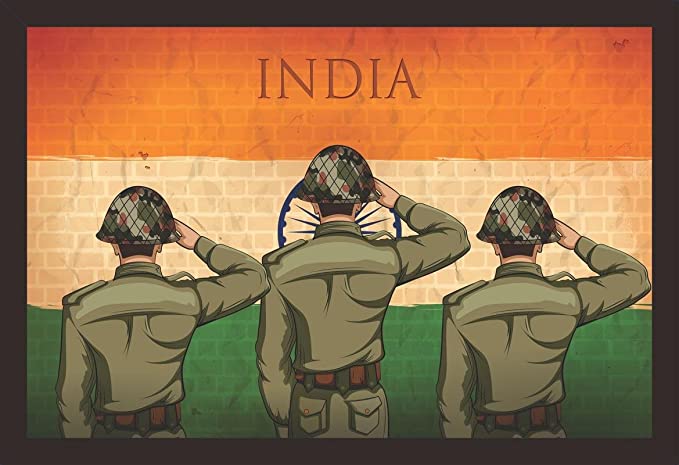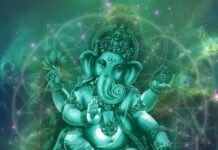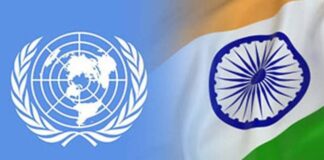Leadership is a term simple to understand and yet a quality which is extremely difficult to define. The Oxford dictionary defines a leader to be a person who by his personal behaviour sets an example for others to emulate. It inspires the follower in bringing out the best in them even when the work environment or conditions are not conducive. Leaders inspire and lead men under their command to face adverse situations, fight through challenges, make way through odds and walk that extra mile to finally emerge victorious.
By Lt. Gen Ajai Kumar Singh
Leadership serves as a guiding beacon for the subordinates to follow in order to ensure that the organisation as a whole achieves greater heights of glory and success in the ensuing times. Indeed, it can be said to be the defining factor on which pivots the entire organisation. As far as India is concerned, the nation looks up at the ‘Men in Uniform’ to be the hallmark of true leadership. Army leadership has held an exalted position in the nation as we are supposed to be the last bastion that the nation can turn to. On account of this, the armed forces and more so its leadership must possess the highest possible standards of morals and ethics and cannot afford to falter, let alone fail!
Over the years though some questions have been raised over the gold standards of military ethical leadership. These have come in the form of the military leadership being adversely commented upon in some cases. While one could brush these aside by looking at them as ‘one off cases’ or a ‘few rotten eggs’ in an otherwise perfect organisation, the fact of the matter is, matters of ethics and morals concerning the military are of great importance to not only us but also to the nation as a whole. The same is evident from the contents of a print daily dated 16 September 2019 which carried thought provoking remarks of the Hon’ble Supreme Court as follows : ‘Corruption in any department cannot be tolerated, but when it comes to corruption in the Indian Army, this fact shakes the very confidence of the society.
The above remarks may put a question-mark on the firm belief that people have shown in the Indian Army. The Indian military leadership has for years rightly been hailed and recognized as the finest in the world. It has stood the test of time and lived up to very high ethical standards time and again. This fact holds true even today. However, when we are faced with questions like the ones raised above, there is a need to carry out introspection within the organisation to figure out whether there is something afflicting the Indian Military ethical leadership and recommend measures by which it could be revitalized and equipped better to discharge the enormous responsibility it has been entrusted with. Therefore, it is imperative for the readers to read this article in the correct perspective.
This article primarily seeks answers to two essential questions viz. ‘what strains the Indian military ethical leadership and what can we do to revitalise/strengthen it?’ However, let us first understand what ethics are and what we mean by Indian military ethical leadership.
What are Ethics?
Before going any further, it would be prudent to have a look at few closely related and usually interchangeably used terms concerning the subject at hand, namely, ethics, integrity, honesty and morals. The following definitions for the same are found in the ARTRAC Leadership manual (2015) :
Morals: Concerned with the principles of right and wrong behaviour.
Integrity: The quality of being honest and having strong moral principles.
Honesty: Free of deceit and untruthfulness; sincere.
Ethics: Moral principles that govern a person’s behaviour or the conduct of an activity.
It is worth noting that there is no legalese attached to any of these words as they are not enforced through any provision of law. They are in fact concerned with an individual’s own convictions and principles. While guidelines and rules can spell out ethical behaviour, the actual conduct of the same has to be driven by individuals themselves. Thus it is important to understand that ethical behaviour comes from within and cannot be driven from without.
The English word ‘ethics’ is etymologically derived originally from the ancient Greek word ‘ethikos’ meaning relating to one’s character, which itself originated from the root word ethos meaning character and moral nature. From that was derived the Latin word ‘Ethics’, then French word ‘Ethique’, and subsequently English word ‘Ethics’. The word itself has been deeply studied and explained by scholars. Important amongst these works are by Rush Worth Kidder who defines ethics as ‘the study of the ideal human character or the science of moral duty’ and Prof Richard William Paul and Prof Linda Elder who speak of it as a ‘set of concepts and principles that guides us in determining what behaviour helps or harms creatures.
Here it is relevant to distinguish between ‘ethics’ and ‘morals’. While morals refer to knowledge of ‘right’ and ‘wrong’, the term ethics implies to the application of these values in conduct.
Having understood ethics, it is essential to understand that the subject of ethics is not new to us. In fact, it would be fair to say that ethical behaviour has been integral to our culture and has been enunciated in detail in many of our ancient scriptures. Examples of the same are found in most of our holy scriptures. The Bhagvad-Gita calls for Anasakta Karma (work done without attachment/expectations) and Lok-Samgraha (selfless action done for public good) and Sva-dharma (own dharma or own duty) . While the Holy Quran tells us that the Prophet Muhammad has asked us to serve God “as if we could see Him” and said, “God sees you although you cannot see Him”. Further, the Guru Granth Sahib tells us ‘truth is higher than everything, but higher still is truthful living’. The crux of Indian ethical behaviour can be found in the Sanskrit verse – ‘Atmano Mokshartham Jagat Hitaya Cha’ (For ‘liberation’ of the self (own soul) as well as for the welfare of the world).
A study of our literature reveals that ethical values have been considered to be essential for the functioning of our society. Thus, ethical behaviour to us Indians should come naturally and should in fact be our way of life.
Understanding Military Ethics
The understanding of military ethics revolves around the critical question: what is the relevance of military ethics for a soldier? To answer this question it is prudent for each man in uniform to have a crystal clear understanding of the concept of military ethics. This understanding facilitates the application of just behaviour while dealing with matters of ethical dilemmas and enables each and every soldier to discharge his duties and responsibilities best suited to the ethical standards of the organisation.
According to the US Department of the Army FM 100-1, the Professional Army Ethics is a shared set of values, the guiding beliefs, standards, and ideals that characterize and motivate the Army. The emphasis on military ethics are epitomised in the few lines of the morning prayers at the National Defence Academy, Kharakvasla, Pune “Awaken our admiration for honest dealing and clean thinking and guide us to choose the harder right instead of the easier wrong” as also… “Endow us with the courage which is born of the love of what is noble and which knows no compromise or retreat when truth and right are in peril”.
Ethical Leadership
Having developed an understanding of the term ethics let us now understand ethical leadership. Ethical leadership has been defined by various scholars as under:-
Cumbo while defining Ethical Leadership focuses on the leader. As per him, a leader is considered ethical when inward virtues direct the leader’s decision-making process.
Lieutenant Colonel Christopher M Barnes defines Ethical Leadership as the demonstration of appropriate conduct through personal and professional actions and relationships and the promotion of such conduct to subordinates through two-way communication, reinforcement and decision making.
Based on the above ethical models and definitions of Ethical Leadership by various scholars and practitioners, Ethical Leadership can simply be defined as an art practiced by a leader who seeks answers to the following questions before making his decisions :-
Is the action or step a fair and unbiased one?
Will this decision stand good with respect to the defined and established values of leadership?
Will the end result be encompassing the values of honesty, transparency and larger interestof the organisation?
Military Ethical Leadership
As per the US Army Leadership Doctrine, one of the primary responsibilities of an Army leader is to maintain an Ethical Environment that supports development of a character that possesses the desire to act ethically in all situations which implies doing the right thing for the right reason and with the right goal. Further, ethical military leaders internalise and practice the Professional Army ethics, elements or values of Integrity, Duty, Loyalty and Selfless Service, as outlined in the Department of Army Field Manual 22-100.
Military Ethical Leadership can be thought of as ethical leadership of the highest form, through which a military leader can call upon his men to follow him even into death. Nothing exemplifies this better than the poem ‘The Charge of The Light Brigade’ by Lord Alfred Tennyson. While the poem itself is a masterpiece, the following lines from the poem lucidly bring out the importance of military ethical leadership:
“Forward, the Light Brigade!”
Was there a man dismayed?
Not though the soldier knew
Someone had blundered.
Theirs not to make reply,
Theirs not to reason why,
Theirs but to do and die.
Into the valley of Death
Rode the six hundred.
Practising Military Ethical Leadership
Having understood military ethical leadership, it is important to understand as to how military ethical leadership is practised. In essence, any ethical leadership and thereby military ethical leadership is practised through a combination of two concepts i.e. ‘Ethical Triangle’ and ‘Ethical Pyramid’.
Indian Military Ethical Leadership
Military ethical leadership is nothing new to us. It has been integral to our leadership since the days of Mahabharata and Ramayana. During the battle of Mahabharata, when Arjuna chose not to fight against his cousins due to an ethical dilemma, lessons on ethics and values were preached to him by Lord Krishna through the Bhagavad Gita wherein he was explained the concept of Dharma and asked to undertake the fight as it was ethically right. Besides this, there are countless other examples in our ancient scriptures wherein the highest form of military ethical leadership has been practised.
Let us now see some stellar examples of our military ethical leadership from the post-independence period. These would give you an insight into the exemplary military ethical leadership displayed by our great military leaders.
Lt Gen Thakur Nathu Singh Rathore:
He was offered the appointment of the first Commander-in-Chief of the independent Indian Army so as to replace the retiring General Roy Bucher by Sardar Baldev Singh, then Defence Minister. He, however, declined the offer stating that General K M Cariappa, OBE (later Field Marshal K M Cariappa) was senior to him and thus more eligible for the prestigious appointment.
Field Marshal K M Cariappa, OBE:
He displayed unparalleled values of military ethical leadership when his son Flt Lt KC Cariappa was shot down and taken as a prisoner of war (PoW) during the 1965 Indo-Pak War. On being offered the release of his son by Gen Ayub Khan, the Field Marshal is reported to have mocked at the idea and reported to have said that he is like any another soldier of the nation fighting for his motherland and should be given the same treatment as that being given to other Indian PsoW.
Lt Gen Shankar Rao Pandurang Patil Thorat, KC, DSO: A General endowed with qualities of character and strategic vision. He predicted the nefarious designs of the Chinese in his note of 08 October 1959. He had the moral courage to tell the then Defence Minister Shri Krishna Menon the truth before it happened. Had he been the Chief as proposed by Gen K S Thimayya, DSO the course of Indo-China 1962 war would definitely have been different!!
The above examples have set the highest ethical standards for our junior military leaders to emulate and imbibe. Our forefathers have established a set of ethical values and provided us with the right ethical direction. On account of the same, the Indian military practises ethical leadership of a high order. While this holds true in most cases, due to various factors over the years, our military ethical leadership has come under some amount of strain.
Conclusion
“Yat-Yatacaratisresthas – tat-tad eve’tarojanah
Sa yatpranamkurute – lokas tad anuvartate”
Whichever may be the way of life that a superior adopts –
that very one is by other people followed.
What he makes his guiding principle,
the world too behaves according to the same
In conclusion, it is reiterated that this piece should not be taken out of context. It is not an outcome of a drastic fall in military ethical leadership or on account of cases of extreme low morals and ethics being displayed by our leadership. It is firmly believed that the edifice of Indian military ethical leadership rests on extremely strong foundations and as such there is no major lowering or fall in its unimpeachable standards. It is only that over the years it has come under some strain and the reasons for which have been elucidated in the article. The Indian military being an integral part of our society, it is but natural that we are also affected by the ethical norms characterising our society. Thus, most of these strains that have been deliberated upon in this article are societal in nature. Therefore, it is imperative that some thought is spared for finding solutions to the issues that we are faced with. This piece aims at some practical recommendations towards the same.
As Indian military leaders, we must be aware that we have an important and sacred responsibility towards our nation and our fellow soldiers. To enable us to discharge this duty effectively, we must be cognisant of the fact that inherent within each one of us is the seed of military ethical leadership. It should be our endeavour to nurture this seed and make it grow into a healthy plant first and a sturdy tree subsequently. It is firmly believed that Spirituality is the panacea which will help in achieving this! It would further help in revitalising our military ethical leadership which would upgrade our gold standards of military ethical leadership to platinum!!
This article first appeared in www.vifindia.org and it belongs to them.








